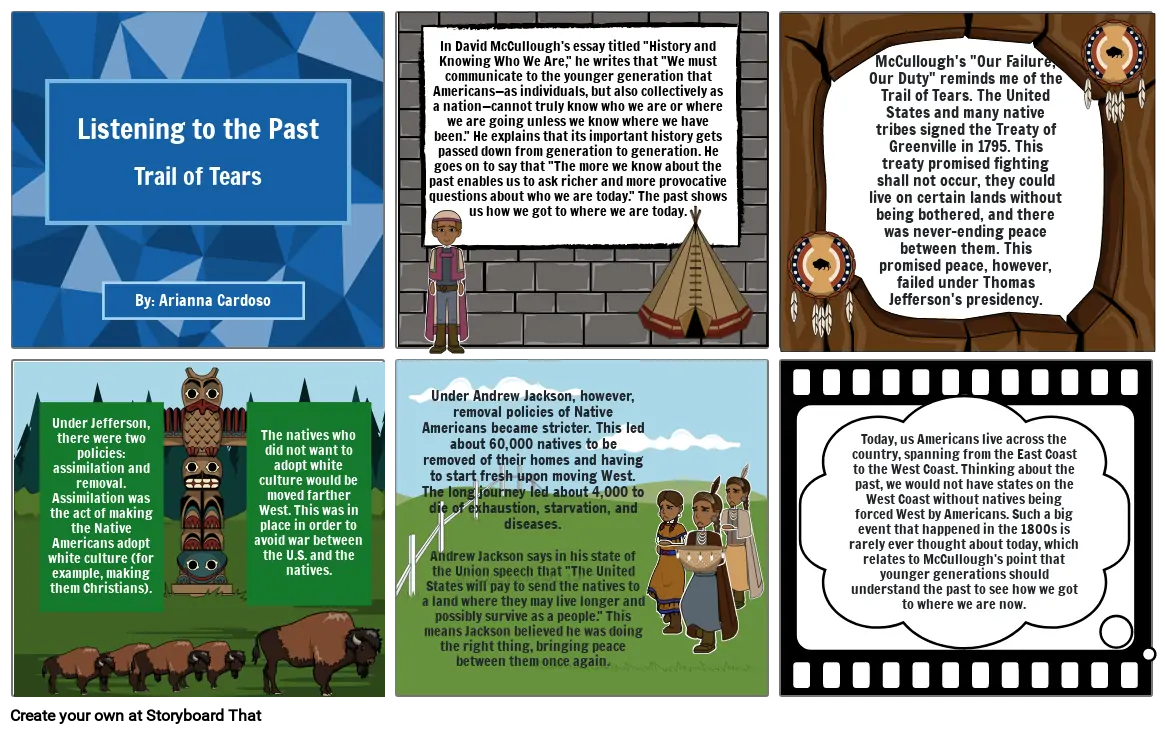Unknown Story

Siužetinės Linijos Tekstas
- Listening to the PastTrail of Tears
- By: Arianna Cardoso
- In David McCullough's essay titled History and Knowing Who We Are, he writes that We must communicate to the younger generation that Americans—as individuals, but also collectively as a nation—cannot truly know who we are or where we are going unless we know where we have been. He explains that its important history gets passed down from generation to generation. He goes on to say that The more we know about the past enables us to ask richer and more provocative questions about who we are today. The past shows us how we got to where we are today.
- McCullough's Our Failure, Our Duty reminds me of the Trail of Tears. The United States and many native tribes signed the Treaty of Greenville in 1795. This treaty promised fighting shall not occur, they could live on certain lands without being bothered, and there was never-ending peace between them. This promised peace, however, failed under Thomas Jefferson's presidency.
- Under Jefferson, there were two policies: assimilation and removal. Assimilation was the act of making the Native Americans adopt white culture (for example, making them Christians).
- The natives who did not want to adopt white culture would be moved farther West. This was in place in order to avoid war between the U.S. and the natives.
- Under Andrew Jackson, however, removal policies of Native Americans became stricter. This led about 60,000 natives to be removed of their homes and having to start fresh upon moving West. The long journey led about 4,000 to die of exhaustion, starvation, and diseases.Andrew Jackson says in his state of the Union speech that The United States will pay to send the natives to a land where they may live longer and possibly survive as a people. This means Jackson believed he was doing the right thing, bringing peace between them once again.
- Today, us Americans live across the country, spanning from the East Coast to the West Coast. Thinking about the past, we would not have states on the West Coast without natives being forced West by Americans. Such a big event that happened in the 1800s is rarely ever thought about today, which relates to McCullough's point that younger generations should understand the past to see how we got to where we are now.
Sukurta daugiau nei 30 milijonų siužetinių lentelių

